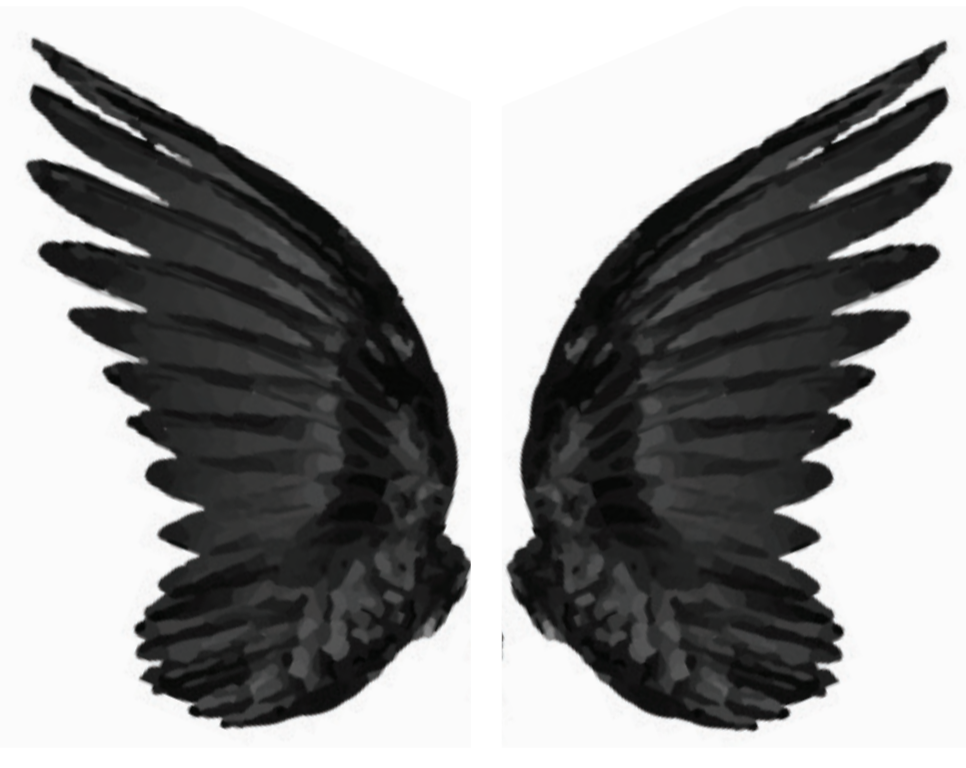“Negro Swan”
Devonté Hynes of Blood Orange delivers an empowering message for those who don’t fit into societal norms.

Blood Orange’s most recent album starts with miscellaneous sounds from the streets of New York, and it soon becomes clear: The album will be raw and it will be personal. Devonté Hynes, the singer and songwriter behind the band, has been known for crafting music relating to the black experience, and “Negro Swan” is no exception.
Throughout the album, Hynes delves into the concept of the “negro swan” and how it relates to the lives of people of color. Hynes shares his own journey of trying to fit into society, depicting childhood bullying, feelings of loneliness, isolation and finally finding empowerment in being himself. Although his anecdotes are from his own life, the broader theme of outshining the negative connotations that society has given him for being different is one that is universally held by people of color. Compared to his previous work, Hynes’s recent project is more fleshed out and intimate.
The record begins with “Orlando,” in which Hynes describes going to school in Essex over an ‘80s groove reminiscent of something off of Donald Glover’s 2016 album, “Awaken, My Love.” Despite the upbeat instrumental, the lyrics are somber. Hynes recounts getting beat up from a young age, even calling it his first kiss: “After school, was sucker punched down / Down and out / First kiss was the floor.”
On the following track, “Saint,” he delivers a motivational message to his younger self and how he wishes he had realized his worth earlier. “You wish I’d seen, the saint you were before / Your skin’s a flag that shines for us all,” he sings.
The theme of the record becomes apparent on the interlude “Family,” where African-American transgender activist Janet Mock speaks about finding supportive communities: “I think of family as community / I think of the spaces where you don’t have to shrink yourself / Where you don’t have to pretend or to perform.” Mock’s voice is featured on three more tracks and ties the theme of the record together.
The first interlude precedes “Charcoal Baby” in which Hynes builds on the societal pressure to fit in, using the term “negro swan” repeatedly to mean someone who is different. He mentions being the odd one out, and struggling to count the reasons he is not alone. Hynes then states that “no one wants to be the negro swan.” This track is a standout lyrically and sonically, Hynes’s falsetto shining through the haze of the demo-like production.
On the track “Hope,” veteran rapper Puff Daddy provides a heartfelt spoken word and verse. This track is another high point and is as close to a ‘90s urban contemporary track as we will get in 2018.
Harlem rapper A$AP Rocky — who Hynes was couch surfing with while recording parts of the album — makes a contribution a few tracks later that doesn’t add much lyrically, but serves as a reminder that “Negro Swan” is an unfiltered narrative of Hynes’s life.
The thematic arc of insecurity and being comfortable in one’s own skin comes to an end in “Out of Your League” where Hynes brushes aside the people who caused his self doubt. In “Charcoal Baby,” the term “negro swan” is used to mean “left out.” However, the tone of “Out of Your League” redefines the album’s previously melancholy theme, and thus the term “negro swan” itself. “Maybe a thing that you wanted is all that you need / Don’t have to fill no expectation that aren’t the thoughts that you conceive,” he and California R&B singer Steve Lacy harmonize.
Despite Hynes’s powerful lyrics, the album’s production is where “Negro Swan” truly shines. Like “Freetown Sound,” Hynes’s latest release is an amalgam of rap, R&B, soul and many other genres traditional to black culture in the United States and U.K. But on “Negro Swan,” the low-fi mixing and variety of genres capture the cloudy feeling of uncertainty, insecurity and disconnection that plagued Hynes’s early life. Eerie saxophone riffs by Jason Arce sprinkled throughout the tracklist add to the fog.
In his fourth project, Hynes has created a true artistic masterpiece in its purest form. The album is relatable and provides an empowering message for people who do not fit into the traditional norms of society. Sonically, even the unsettling moments add to the raw aesthetic. Hynes’s performance coupled with the production makes “Negro Swan” one of the most intriguing and impactful records of the year.
–Review by Ari Tandan
“Sweetener”
Ariana Grande explores her highs and lows of the past year in her most personal piece of art yet.
 On May 22, 2017, during an Ariana Grande concert in Manchester, England, a suicide bomb went off. The bombing was labeled as a terrorist attack, killing 22 people and injuring 50. Following the incident, Grande began to struggle with post-traumatic stress disorder and anxiety.
On May 22, 2017, during an Ariana Grande concert in Manchester, England, a suicide bomb went off. The bombing was labeled as a terrorist attack, killing 22 people and injuring 50. Following the incident, Grande began to struggle with post-traumatic stress disorder and anxiety.
In Grande’s fourth and most recent studio album, “Sweetener,” listeners get a clear look into her emotions as she deals with her anxiety following the Manchester attack and the trials and tribulations of her relationships.
The album begins with a mellow song titled “raindrops (an angel cried),” setting the sweet yet mature tone of the album.
The record picks up with a faster pace on the single “the light is coming.” The song is an inspirational but oddly dark piece about overcoming low times. However, the song is spoiled by Nicki Minaj’s irrelevant opening verse, where she raps, “Yo Ariana, come let me give you a high five.”
 The album transitions into the shining song, “God is a woman.” This is the centerpiece of “Sweetener,” an anthem of womanhood and femininity, reinforced by transcendent background harmonization. It is the birth of a new generation of pop, full of powerful messages of self-assurance.
The album transitions into the shining song, “God is a woman.” This is the centerpiece of “Sweetener,” an anthem of womanhood and femininity, reinforced by transcendent background harmonization. It is the birth of a new generation of pop, full of powerful messages of self-assurance.
Surprisingly, the worst song off of “Sweetener” is easily the title track. Although the theme of the song is about making the best of a bad situation, Pharrell Williams’s obnoxious ad-libs, paired with the consistent beat switch-ups, takes away from the overarching message of the song. It is incohesive and all over the place, making “sweetener” a mess to listen to.
Despite Williams’ lacking performance on the title track, he brings a lot to this album. Not only is he featured in one of the songs, but he also worked as a producer with Grande for six songs off of the album. His insight allows “Sweetener” to have a fresh take on pop music, bringing in elements from his expertise in hip-hop and R&B.
The first time Grande truly gets personal in “Sweetener” is in “everytime.” She examines her past unhealthy relationship, where she still felt drawn to her toxic partner: “Why, oh why does God keep bringing me back to you?” This is speculated to be about Grande’s ex, rapper Mac Miller, who recently passed away from an overdose, making the song and album even more heartbreaking.
“Everytime” is quickly juxtaposed by the following song, “breathin.” Although just as personal as “everytime,” “breathin” takes an inspirational turn, showing listeners that despite anxiety, one can find happiness. This is Grande’s most listened-to song on Spotify, proving the importance and power of her message.

Despite Grande’s long year of hardships leading up to the release of “Sweetener,” Grande found a source of positivity: her ex-fiance Pete Davidson. Grande wrote a love letter to Davidson in her album – an interlude fittingly titled “pete davidson.” Though they separated shortly after the release of “Sweetener,” the song highlights the happiness Grande found when the two were still together.”
The closing track on the album is probably the most noteworthy, titled “get well soon,” The song discusses the events at Manchester, reminding the listeners to take care of themselves. As the song and album close, there are 40 seconds of silence, bringing “get well soon” to five minutes and 22 seconds, mirroring the date of the Manchester attacks — the 22nd day of the fifth month of the year.
Overall, “Sweetener” is Grande’s most intimate album to date. She tackles love, pain and inspiration. She teaches listeners that things will get better, and that it is okay to acknowledge sadness. Musically, the album is somewhat redundant, including multiple forgettable tracks. However, the content of the album makes it a worthwhile listen, especially if you need a little sweetener in your life.
–Review by Elliot Johnson




